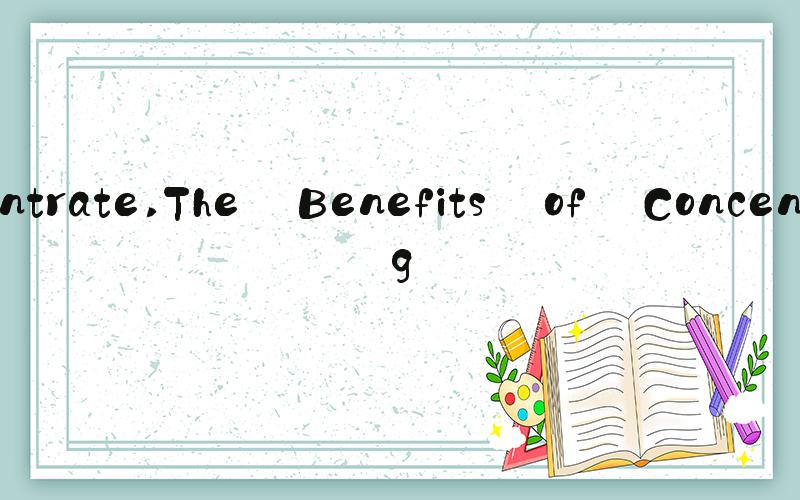AI答案
 What Does It Mean to Concentrate?
What Does It Mean to Concentrate?Concentration is the ability to focus all of your attention and energy on one thing for an extended period. It is a vital skill that enables you to complete tasks efficiently and effectively. Concentration is often the key to achieving your goals, whether you want to ace an exam, complete a work task on time, or master a new skill. In this article, we explore what it means to concentrate and offer practical tips on how to improve your concentration.
The Benefits of ConcentratingConcentration brings several benefits, including:
Increased productivity: When you concentrate, you work faster, more efficiently, and with greater accuracy.
Better decision-making: Concentration helps you to analyze information more effectively, identify patterns, and make informed decisions.
Enhanced memory: Focusing your attention on a task improves your ability to remember information and recall it when you need it.
Reduced stress: A lack of concentration can lead to stress and anxiety, and the benefits of concentration include reducing stress and promoting relaxation.
How to Improve Your ConcentrationHere are some practical tips for improving your concentration:
1. Remove DistractionsDistractions can make concentration near impossible, so eliminate or minimize them as much as possible. Turn off your phone, close your email, and work in a quiet, organized environment. If you can't control your environment, use noise-cancelling headphones or earplugs.
2. Set Realistic GoalsBreak down your tasks into smaller, achievable goals. This will help you stay motivated, avoid overwhelming yourself, and improve your ability to concentrate over time.
3. Practice MindfulnessMindfulness is a practice that involves bringing your attention to the present moment. This can help you stay focused on the task at hand and avoid mental distractions. Mindfulness practices include meditation, deep breathing, and yoga.
4. Use the Pomodoro TechniqueThe Pomodoro Technique involves breaking your work into 25-minute intervals, followed by a five-minute break. This technique can help you stay focused and energized, especially for tasks that might be boring or difficult to complete.
5. Take BreaksWhile it may seem counterintuitive, taking breaks is essential for concentration. Schedule regular breaks into your day and use them to rest, recharge, and come back to your work with renewed focus and energy.
6. Exercise RegularlyPhysical exercise is linked to better concentration and memory retention. Regular exercise helps increase blood flow to the brain, promote mental clarity, and improve your overall mood and health.
7. Use Visualization TechniquesVisualization can help you concentrate by reducing mental clutter and increasing your ability to retain information. Visualize your success, or concentrate on a mental image that supports your work or goal.
ConclusionConcentration is a valuable and essential skill that can help you achieve your goals, be more productive and efficient, and reduce stress. By following the tips outlined in this article, you can improve your ability to concentrate, tackle tasks with ease and focus, and enjoy the benefits of a more fulfilling, less-stressful life.
